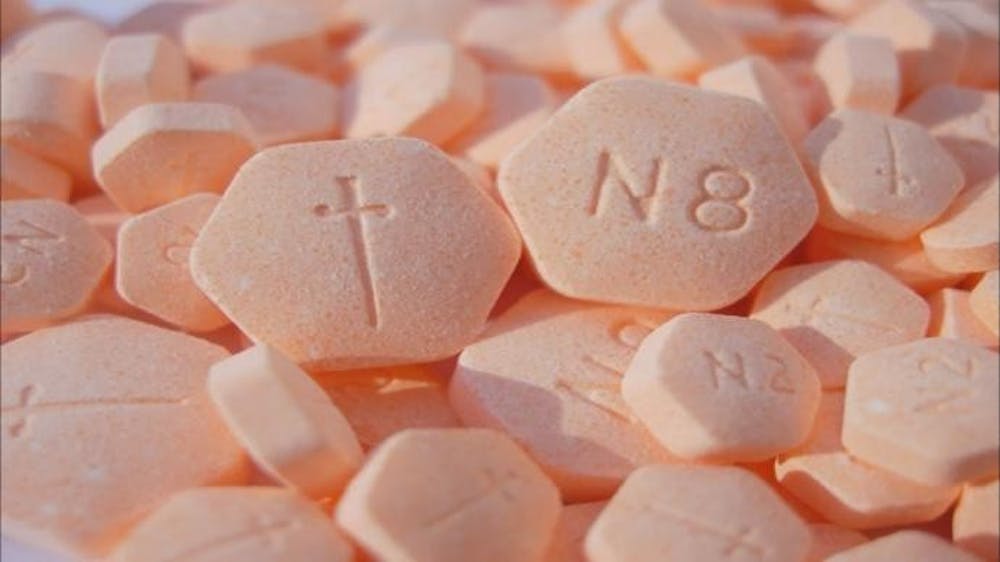The following content is purely satirical and entirely fictional. This article is part of The Daily Princetonian’s annual joke issue. Don’t believe everything you read on the Internet!
After more than a year of undercover investigations by University officials, 17 intramural athletes were suspended by Campus Recreation on Tuesday for doping. The announcement sent shockwaves rippling through campus, cast the future of dozens of teams into doubt, and thrust the demanding world of intramural sports under intense, unwelcome scrutiny.
“This is never the result you want to see, the call you want to have to make,” said a representative for Campus Recreation. “But doping is an ugly side of elite performance. It’s an unfortunate reality. We have no choice but to tackle it head-on.”
The University offers three levels of athletic competition on campus: varsity, club, and intramural. By far the most demanding, Princeton’s varsity programs compete at the NCAA Division I level. Their athletes are largely recruited, blonde, and outfitted in matching clothes.
Club sports are the second level of sports on campus. They are for people who wish they were varsity athletes and had the clout that came with it but aren’t good enough to play Division I.
Princeton’s intramural teams (IM) represent the University’s lowest tier of competition. To many, IM sports seem like nothing more than havens for bumbling computer scientists and anthropologists: graceless, uncommitted to their athletic craft, and convinced that a single round of Spikeball counts as their weekly cardio.
“IM sports?” asked one golf player. “Wait — do those even take athletic ability? They’re not even close to legit.”
However, various conversations with intramural athletes — some accused of doping, others privy to a culture defined by it — revealed a darker side of what appears to be a carefree, low-stakes environment.

Chris, a Tiger Inn senior concentrating in Operations Research and Financial Engineering, is a committed four-year intramural inner tube water polo player. Along with other athletes interviewed for this article, he has been granted partial anonymity for privacy purposes.
“I’ve only had one goal for myself this whole time at Princeton,” he said. “To become the best inner tube water polo player this campus, this state, and this nation has ever seen. I gave up everything for it. I even gave up Naturdays. I missed my McKinsey interview for a game. So did I dope? Yeah. Of course. Horses don’t stop. They keep going.”
Sarah, a sophomore in Rockefeller College, was handed a three-year ban from her IM broomball team after the University found her guilty of using performance-enhancing drugs. The ban will effectively end her IM career.
“At this point, I’m just trying to get honor-coded twice,” she said. “I have four papers due on Dean’s Date, so I should be able to make it happen. Princeton IM sports hasn’t seen the last of me.”

Other athletes took a more creative approach to their defense.
“Yeah, the cocaine test came back positive,” said one member of Ivy Club’s intramural badminton team. “But is that doping? No. Honestly at this point, I’d rather they take me to court than ban me from playing frisbee. My dad knows a judge.”
A Terrace Club IM frisbee athlete, who is a member of the Daily Princetonian’s managing board and refused to be named, complained that the University banned his team after they all tested positive for marijuana.
“Am I sad that I can’t play the coolest sport of all time? Yeah, but it’s fricking bullshit that Cannon can get caught shooting heroin and nothing happens. It just gets swept under the rug,” he said. “Now that we’re out, no one can stop them in the Ultimate tournament.”
A spokesperson for the University relayed the joint response of President Christopher Eisgruber ’83, the Department of Athletics, and McCosh Health Center.
“Jesus Christ. Seriously?”








